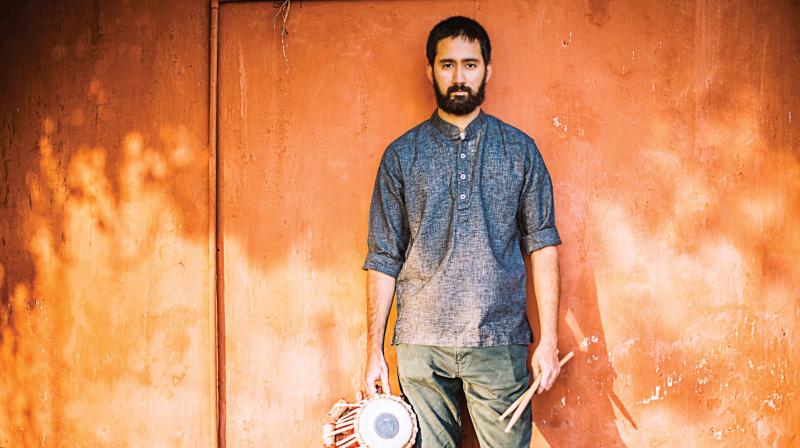Enkor'war to the drum beat

He was born in the USA, gravitated towards tabla growing up in Pune and grew closer to Indian classical music, giving it a fresh spin with jazz and electronica that he picked up when he eventually grew roots in London. The 28-year-old Sarathy Korwar may have hobnobbed around the world but that’s what, he believes, has shaped him - cities and the age at which he has been in them. That influence is evident in his music, something that shines right through Day to Day, his debut album that’s making waves across the world. As he brings it back to where it all started on his tour to India, stopping by Bengaluru on December 16, we couldn’t help but be curious about his journey. Starting with his latest record.
Sarathy is excited to be back in India – reunions with family and friends and checking out new music is on his agenda. Bengaluru will of course remain special to him because of the warmest memories he has of his tabla guru, Rajeev Devasthali, here. Speaking of his latest album, he tells us that it is about how we individually and collectively live from day-to-day, the everyday rituals and tasks that bind us together. It’s a celebration of the trivial and mundane. That’s also where the name comes from. “The album is a commentary on my own identity, every album is in some way. This album speaks of my relationship to and with the Siddi community as a person who has grown up in India and spent a bulk of the past seven years in the UK,” he pitches in. The migrant community’s hypnotic chants, percussive African-derived polyrhythms and lyrics in Swahili even, rest in his nine-track album. Ethnomusicologist Amy Catlin-Jairazbhoy put him in touch with a Siddi performing troupe, and since, Sarathy has spent time with them, in raptures about their rich and diverse influences. “My most memorable moment was sitting on the banks of the Narmada recording Salim Gulammohammad Siddi singing his heart out and playing the malunga. This was on the evening of Uttarayan and the sky was lit up with tukkals,” he recalls fondly.
He is just as fascinated by people like Charles Lloyd, The Bad Plus, The Necks, Sun Ra, Don Cherry and Zakir Hussain. His Indian classical music-loving parents are his other earliest memories. “Both my parents took singing lessons (and still do) and hearing them singing sargam and paltas around the house is one of my first memories. I don’t know why I gravitated towards percussion but there were some tabla classes that were being offered near my house and my mother says I showed an interest so I went along,” he tells us.
He also has a BSc in Environmental Science and he supposes, he could have pursued a career in urban planning or sustainable living. But if you take one look at his schedule packed with Magnetic Fields Festival in Alsisar from December 9 to 11 and the GOAT festival in Goa in January, you’d know he’s in no rush to stray from his chosen field – music. In fact, he advices others to go for it too. “Be prepared for a lot of financial ups and downs (mostly downs) and if you choose to become a drummer be prepared to lift a lot of heavy drums round the clock,” he tips off.
Going forward, he wants to work on themes of identity, collective action and spontaneity. “I’ve begun work on a second album which will feature MC, rappers and spoken work poets from Dharavi and the UK. The underlying theme is about being brown in different places and the consequences of that. It will be a mix of urban Indian, spiritual/free jazz and indian classical influences,” he reveals, continuing on his path of ‘soul searching.’

